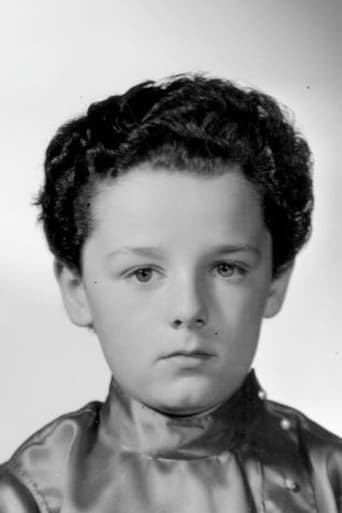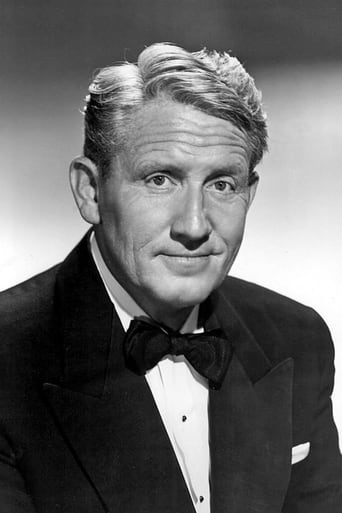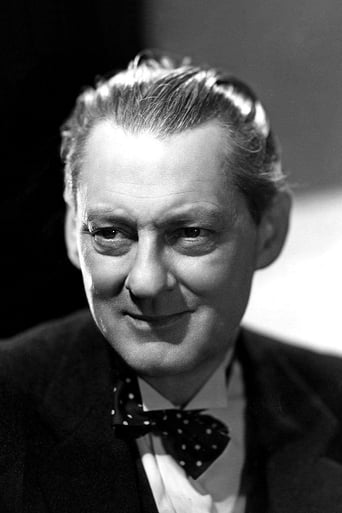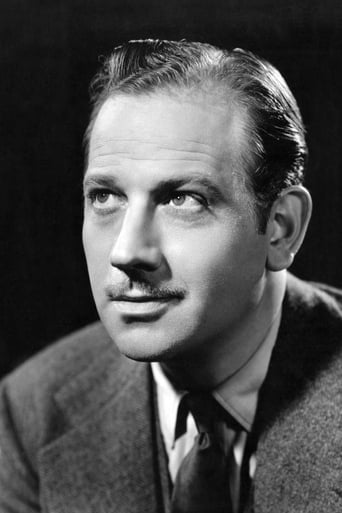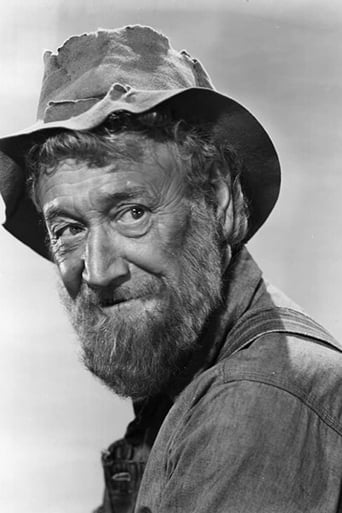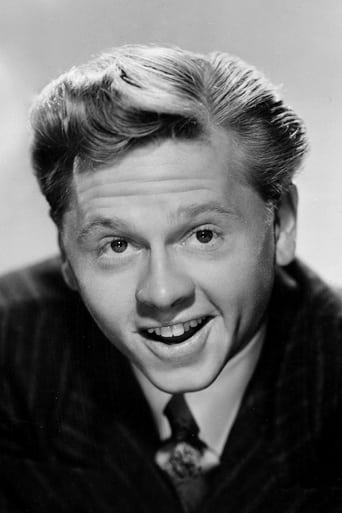Develiker
terrible... so disappointed.
Tedfoldol
everything you have heard about this movie is true.
Stellead
Don't listen to the Hype. It's awful
Salubfoto
It's an amazing and heartbreaking story.
JohnHowardReid
Copyright 21 April 1937 by Metro-Goldwyn-Mayer Corp. A Victor Fleming Production. New York opening at the Astor, 11 May 1937. U.S. release: 25 June 1937. 12 reels. 116 minutes.SYNOPSIS: After he falls overboard from an ocean liner, a rich boy is rescued by a fishing dory.NOTES: Academy Award, Spencer Tracy, Best Actor (defeating Charles Boyer in Conquest, Fredric March in A Star is Born, Robert Montgomery in Night Must Fall and Paul Muni in The Life of Emile Zola). Also nominated for Best Picture (The Life of Emile Zola); Screenplay (. . . Zola); Film Editing (Lost Horizon).3rd Best Film of 1937 (after . . . Zola and The Good Earth) — annual poll of U.S. film critics conducted by The Film Daily. Photoplay Gold Medal Award — Best Picture of 1937 — as voted by America's cinema- going public.COMMENT: Definitely not a picture to see on a queasy stomach, "Captains Courageous" is as real and immediate as a documentary, yet stylishly and attractively photographed. The story is a simple one, crammed with incident and interest. True, it is a little mawkish and sentimental for modern tastes — but that's what these stubborn, superstitious fishermen were like back in 1897 — yet no-one will complain about the movie's great pace and cinematic values. Havens' 2nd unit footage is doubly exciting because it's so deftly integrated with the studio material. In fact, Captains Courageous is edited with superb skill (the opening sequence with its sharp cuts as the news is read to Douglas while he is eating; the fishing episode which very sharply and adroitly inter- cuts both process and studio shots with actuality footage). Admittedly some of the process work is obvious, but few members of a 1937 audience would have detected it. Production values are extremely lavish, with nothing scrimped on sets and players.Lionel Barrymore's hearty performance recalls his later Down To The Sea In Ships. Carradine is excellent, and so is Mickey Rooney in a small part. Jack LaRue has an odd role as a priest.Tracy's portrayal is somewhat hammy for Academy Award recognition. The Portuguese accent is so obviously feigned, it makes the whole impersonation seem artificial. Bartholomew too is a bit over-eagerly amateurish — though both performances seem to improve on a second viewing.Some long takes between Tracy and Barrymore are not characteristic of Fleming. No doubt Conway was responsible for these scenes, including the moving episode in which Tracy talks of his father and Christ. The actor handles this sequence with an assured skill sometimes missing in other scenes where he is obviously a trifle uncomfortable with his make- up, his accent, and his lines. (All this fisher lore reminds the modern viewer of Tracy's later The Old Man and the Sea). Music is used sparingly but most effectively.OTHER VIEWS: I used to pray that something would happen to halt production. I was positive I was doing the worst job of my life. — Spencer Tracy
wes-connors
Spoiled rich boy Freddie Bartholomew (as Harvey Cheyne) is expelled from boarding school for bribery and bratty behavior. Correctly deducing neglect is a growing concern, millionaire father Melvyn Douglas (as Frank Burton Cheyne) decides to take more of an interest in Master Bartholomew, and takes his son on a luxury cruise. After gorging too many chocolate ice cream sodas, Bartholomew falls overboard. He is fished out of the water by Portuguese-accented Spencer Tracy (as Manuel Fidello)...Bartholomew orders Mr. Tracy's schooner captain to take him home, but leader Lionel Barrymore (as Disko Troop) and the crew don't believe bossy Bartholomew is the son of a tycoon. Bartholomew must stay on the "We're Here" boat for three months, and is expected to do his share of the work. It's far from smooth sailing, but Tracy and his "Little Fish" eventually form a strong, character-building bond. This played well with critics and the public. Tracy won an Oscar and Bartholomew is as good.******** Captains Courageous (5/11/37) Victor Fleming ~ Freddie Bartholomew, Spencer Tracy, Lionel Barrymore, Melvyn Douglas
Steffi_P
In its classic heyday, Hollywood made its own heroes. The source material for most classic pictures tended to be from theatre and literature, but the studios were savvy enough to tailor material not only to suit the medium but the resources available to them, without anyone crying "sacrilege!" It's not uncommon for a screen adaptation to cut out one character for the sake of length or beef up the role of another for commercial viability, but sometimes rearrangements need to be made for the sake of Hollywood form. The screenplay for Captains Courageous, whose writing team includes John Lee Mahin, a name on a ridiculous number of excellent MGM features, makes a number of massive changes to Rudyard Kipling's novel, surely the most significant of which is the foregrounding of Manuel to a major character. In the book, Manuel is simply another crew member and a relatively minor character, whereas in the film he becomes the very spirit of the story, and a surrogate father figure for young Harvey. It puts a powerful new emotional slant on the tale, but also puts the burden on the writers to build the character into someone who can carry the picture.This was the way Hollywood worked at the time. Its stars were characters, and its stories were built around powerful personas. Captains Courageous needed a Manuel. And Manuel needed a star who could breathe lungfuls of life into him. Spencer Tracy was perhaps an odd choice for a Portuguese fisherman – he was not one of those generic ethnic types like Mischa Auer or Akim Tamaroff who were cast as anything from Mediterraneans to Manchurians. But even this early in his career he had carved out a reputation for earthy, honest good guys, and this was indeed the very reputation Fritz Lang was trying to pervert as early as 1936 in Fury. And while Tracy can quite easily put on the "funny foreigner" act he never once loses sight of his character's emotional truth. He presents Manuel as a daffy caricature, and yet allows genuine tenderness, pride, grief or anger to shine through the stereotype – and that is the beauty of his performance.But the character of Manuel and his effective interpretation by Tracy cannot carry the picture alone. It's time to look at the contribution of director Victor Fleming. Fleming was himself a rugged outdoorsman who took a no-nonsense approach to film-making, which translated into excitement on the screen. Fleming pictures move, and they move quickly. Take the opening scenes on dry land. There is quite a lot to take on here – Freddie Bartholemew's character, his relationship with his father, and the sequence of events which lead him to be stranded in the Atlantic. Fleming packs it all into twenty minutes, and an engaging twenty minutes at that. How? First, the actors are coached to spit out their dialogue as quickly as is feasible. There is no room given to wordless contemplation, and there doesn't need to be at this point in the story either. Second, Fleming makes these scenes seem even faster than they really are. Characters walk as they talk, and shots often begin and end with movement, buffeting us from one point to the next.Even once we are underway on board the We're Here, motion is a continual presence. Crew members bustle about, sometimes getting between the camera and the protagonists, and everyone tends to keep working as they talk. This not only gives a realistic atmosphere to life aboard a busy fishing vessel, it gives a rough and relentless pace to the images. Just like young Harvey, we are being dragged along for the ride. Even in the more sedate scenes, such as Tracy playing his hurdy-gurdy on watch, Fleming keeps the sea sweeping up and down as a backdrop. After the furore that came before it's now quite a soothing presence, but we are never allowed a moment of total stillness, and when the story eventually gets back on dry land the difference is quite jarring.The crew of this fictional fishing boat are appropriately motley, with such distinguished hams as Lionel Barrymore, Charley Grapewin and John Carradine. Rather than harm the sincerity of the picture with their grandiosity, they actually fit in nicely as a bunch of salty dogs, and they stop Tracy's performance from looking farcical. At the very opposite end of the scale we have that fine naturalistic performer Melvyn Douglas, seeming appropriately muted for his role as the landlubber of the piece. Freddie Bartholemew was always a little too childish for his career to last into adulthood, but he does well here by simply reacting believably to those around him. By contrast, Mickey Rooney was always destined to be a star for life, because he never dwelled on being the child star, and was always an actor first and foremost. A final honourable mention goes to Sam McDaniel as Doc. He is the lesser-known brother of Hattie McDaniel, and although his career was very prolific this is one of his few credited appearances.I do not know whether there were significant numbers of Kipling purists around at the time, lamenting the swathe of differences between this version and the novel, but certainly now there are a lot of people who will criticise a film for not being the book. But what good would it do the book if they got their way? Surely it would make the novel truly redundant if motion pictures were just slavish copies of the printed word. This Captains Courageous has its own identity and is a classic of the screen. This does not mean it has ruined the legacy of what is an equally classic book.
Robert D. Ruplenas
I watched this 1937 winner for the first time tonight and was positively blown away by a movie that hits it out of the park in every department. A moving story about character and human relationships that is beautifully acted, photographed and directed that also just happens to be a great adventure story as well, with some fantastic photography of early 20th century fishing off the New England coast. The movie touches deep human emotions, and the superb script has some wonderfully sharp comic touches, most of them given to the incomparable Spencer Tracy in his fantastic portrayal of Manuel. The great Lionel Barrymore is also memorable as Captain Disko Troop, and it's great to see John Carradine who, as young as he looks here, already had 38 movies to his credit. I guess it's true that it's possible to make great cinematic art that also has popular box office appeal; it's just sad that we see it so rarely nowadays. The movie definitely rates the overworked term, "classic."



